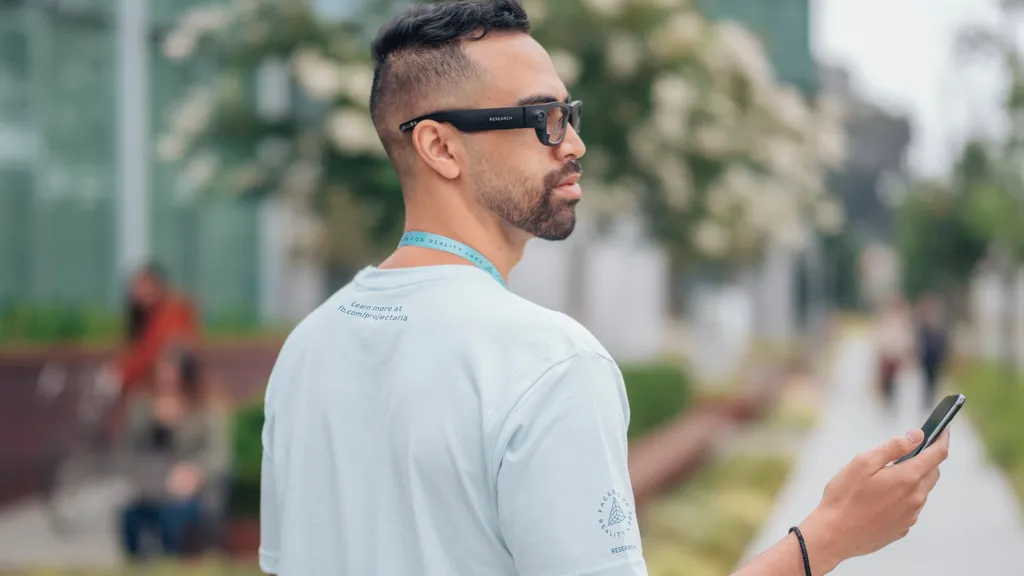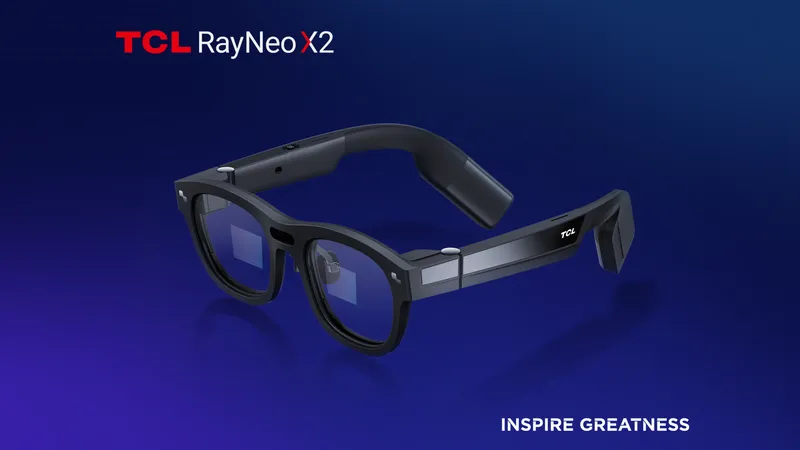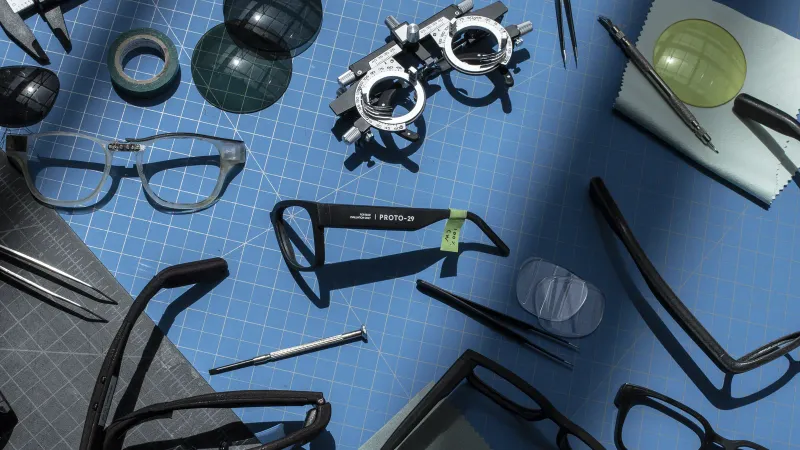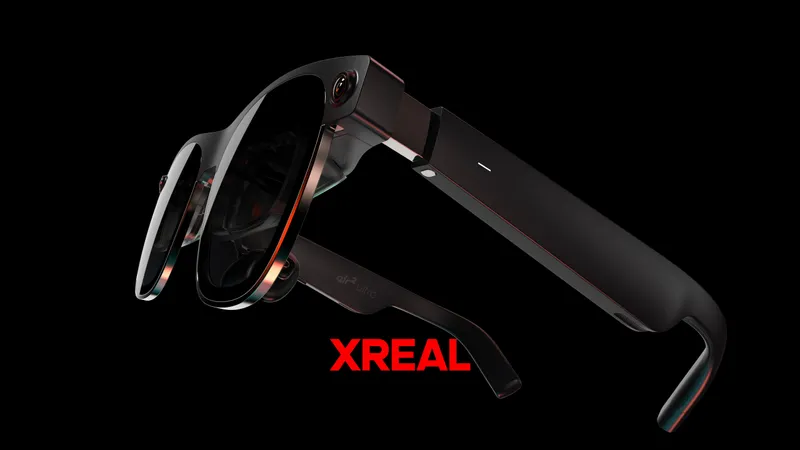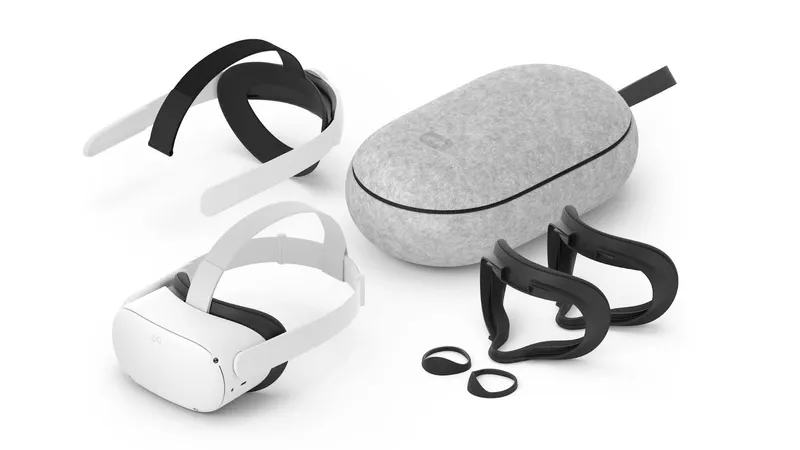An FCC listing for Facebook’s Aria Glasses, which are being used internally for AR research, provides new details via a user manual and various other testing and compliance documents.
The Aria Glasses were first announced at Facebook Connect last year. They are not a consumer product or a prototype for AR glasses, but are instead designed to be worn by Facebook employees as a research tool that will “help us collect data to uncover the underlying technical and ethical questions and start to look at answers to those,” as Facebook representatives explained when the project was announced. Aria Glasses do not feature a display and are intended to capture research data while the wearer goes about their day.
Project Aria “will capture the wearer’s video and audio, as well as their eye tracking and location information. The glasses’ on-device computing power will then be used to encrypt and store information that, when uploaded to separate, designated back-end storage space, will help our researchers figure out how AR can work in the real world,” Facebook explained. “Our future AR devices must be more perceptive in order to be more genuinely useful to us. In order for devices to understand where they are in relation to people and other objects, and how to make sense of any given situation, they need a virtual 3D map of the things around you. But it’s far too power-intensive to scan and reconstruct a space in real time from scratch, so AR glasses will need to tap into an existing 3D map we call LiveMaps. LiveMaps uses computer vision to construct a virtual representation of the parts of the world that are relevant to you. With these 3D maps, our future devices will be able to efficiently see, analyze, and understand the world around them and better serve those who use them. These devices will keep track of changes, like new street names, and update them in real-time. The Project Aria device is testing out how this can work in practice.”
Facebook also announced a partnership with Luxottica and Ray-Ban to produce “smart glasses”, which are unrelated to Aria and due for release later this year.
Now, we have a bit more information and our best look yet at Facebook’s Aria Glasses by way of documents within a FCC listing that was made public recently, as reported by Protocol’s Janko Roettgers.
The documents include a user manual, where the glasses are referred to as “Gemini EVT” and described as “prototype equipment … intended for limited distribution only for purposes of testing and data collection.”
The manual also reveals that the glasses support prescription lenses, and that they do not fold down like a normal pair of glasses — the temples remain fixed at right angles from the main frame.
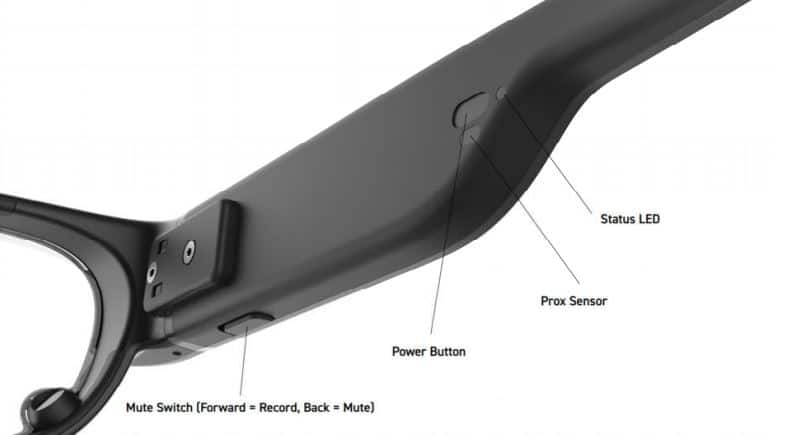
The user manual also includes photos labeling individual parts and external buttons. As you can see in the image embedded above, the glasses offer a mute switch, power button, proximity sensor and status LED.
When the mute switch is set to mute/privacy mode, red is visible on the LED indicator. The right hand side also features a capture button pictured below, but the document (at least at the time it was written) says it is only used to power on the device.
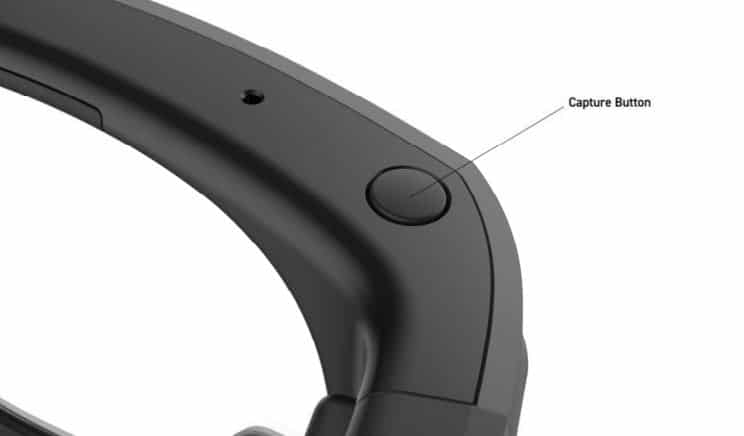
The glasses also come with a microfiber cloth, a power supply and a USB cord with a magnetic connector that attaches to the left temple of the glasses. In the manual, Facebook says this connector is “sensitive” and that users “may have to physically hold it together momentarily for the device to be enumerated and/or initiate charging.”
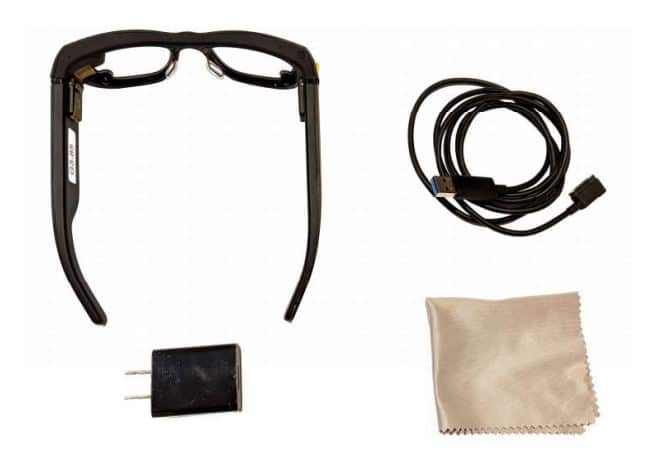
The glasses connect to an internal mobile companion app, called Ariane, and the footage collected from the cameras can be transferred and viewed on a computer as well.
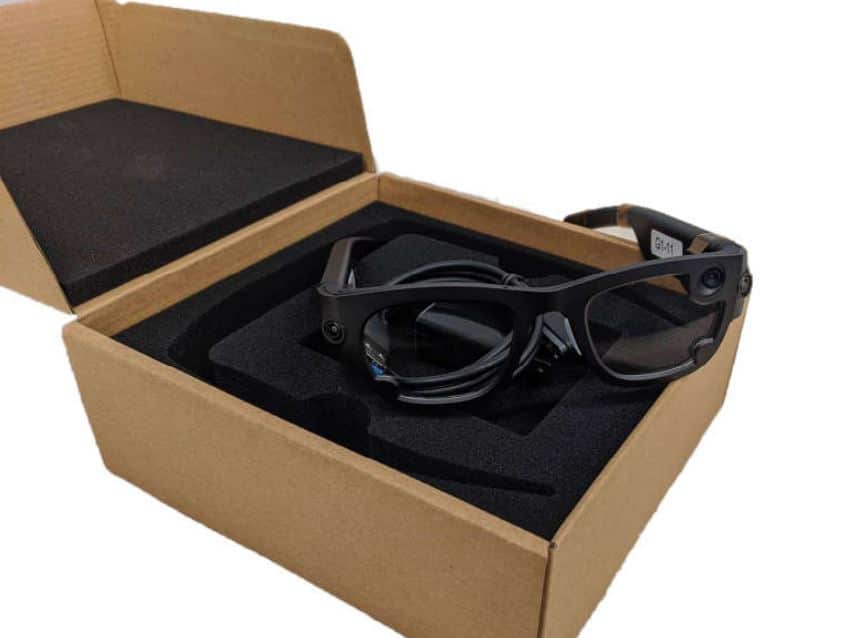
While the Aria Glasses are not the consumer AR glasses many are expecting, they do give an insight into the research process Facebook is undertaking to move toward consumer AR. On the Project Aria site, Facebook is clear that the glasses are for research work only.
With Facebook Connect coming up in October, there’s a fair chance we might hear more about Project Aria and the resulting AR technology then. You can view the Aria FCC listing and all associated documents here.

